 |
If we want to be as happy as can be, and if we want to preserve our position in the world, we will do so by thinking harder and feeling more deeply, not frantically trying to put in ever more hours.
|
174 |
 |
The models of organizational success that dominated the twentieth century have their roots in the industrial revolution and, simply put, the world has changed.
|
020 |
 |
…the world in which [digitally native children] will grow up is not just marginally different from that of previous generations; it is vastly faster and more interdependent, and thus essentially complex in entirely new ways.
|
064 |
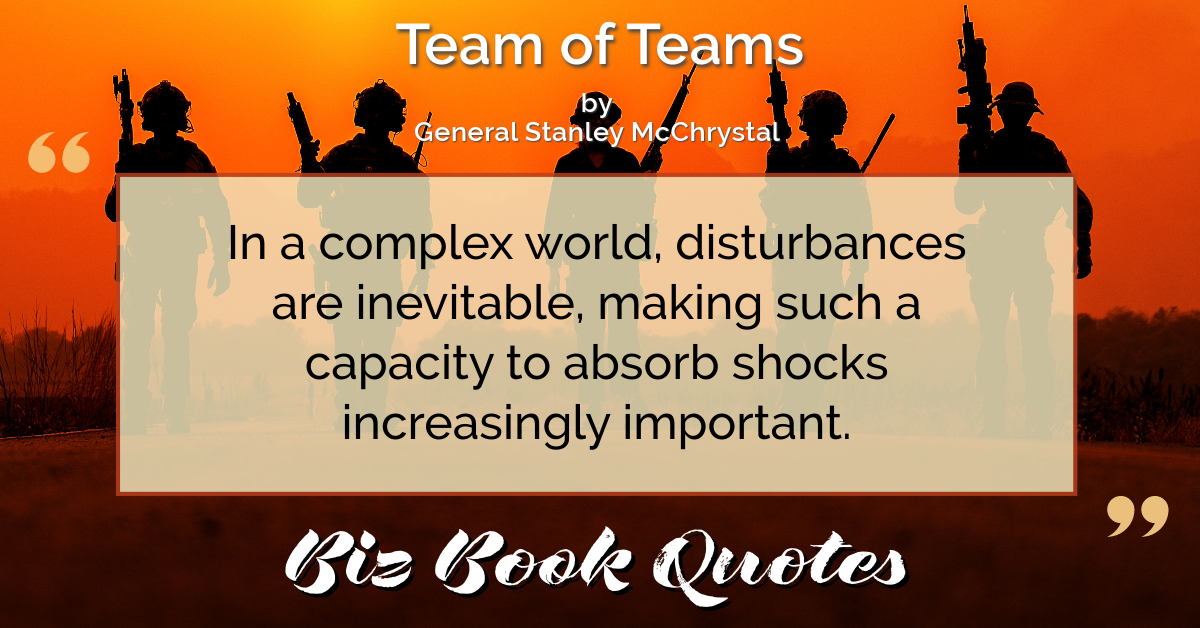 |
In a complex world, disturbances are inevitable, making such a capacity to absorb shocks increasingly important.
|
076 |
 |
…all the efficiency in the world has no value if it remains statis in a volatile environment.
|
081 |
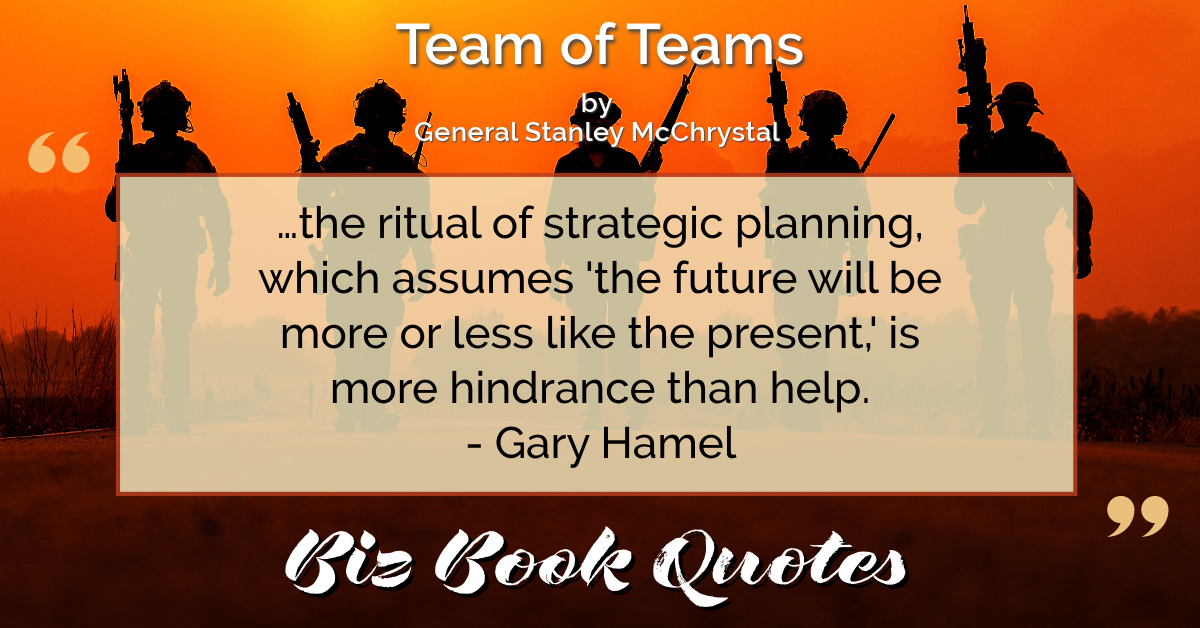 |
…the ritual of strategic planning, which assumes ‘the future will be more or less like the present,’ is more hindrance than help. – Gary Hamel
|
111 |
 |
The speed and interconnected nature of the new world in which we function have rendered it too stupid and slow to survive the onslaught of predators.
|
221 |
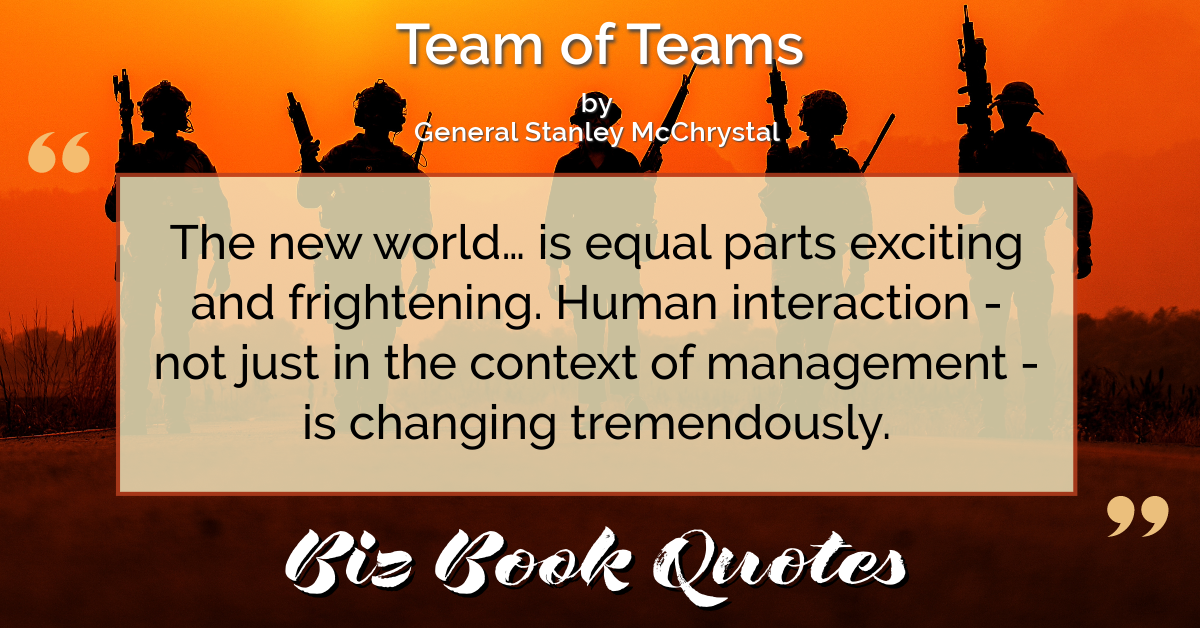 |
The new world… is equal parts exciting and frightening. Human interaction – not just in the context of management – is changing tremendously.
|
246 |
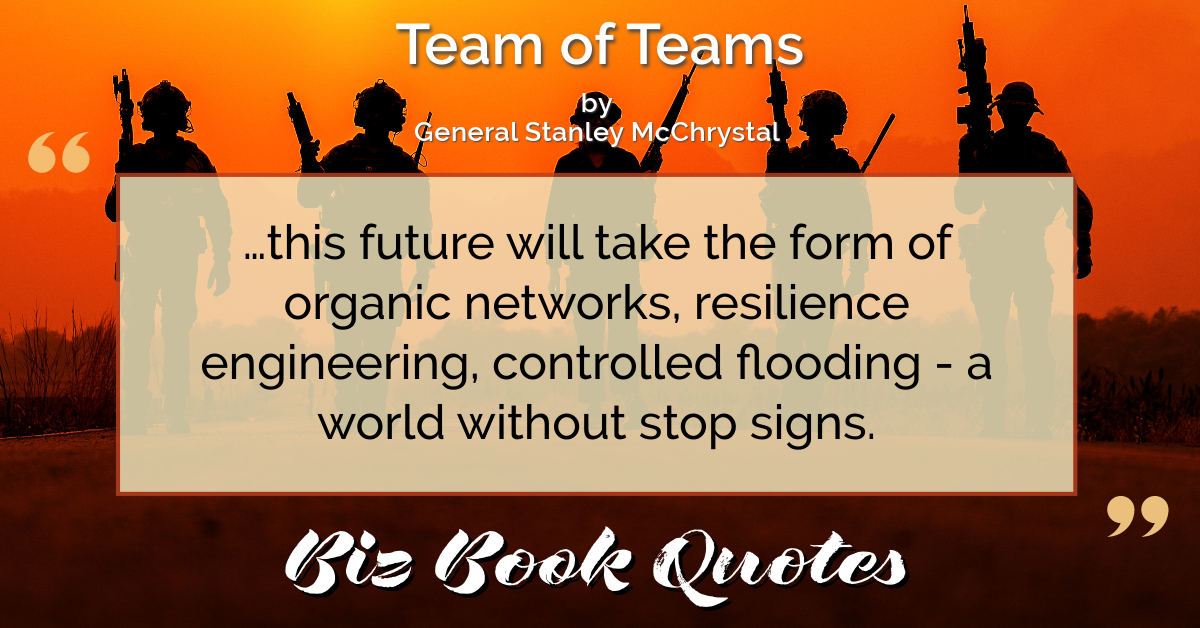 |
…this future will take the form of organic networks, resilience engineering, controlled flooding – a world without stop signs.
|
249 |
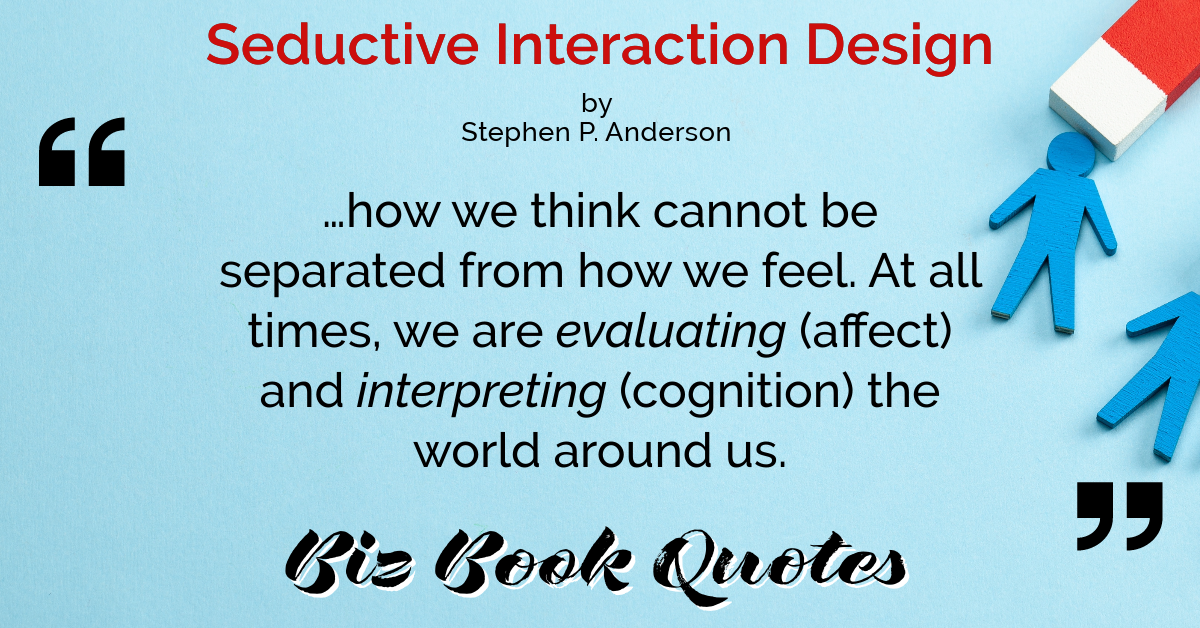 |
…how we think cannot be separated from how we feel. At all times, we are evaluating (affect) and interpreting (cognition) the world around us.
|
032 |